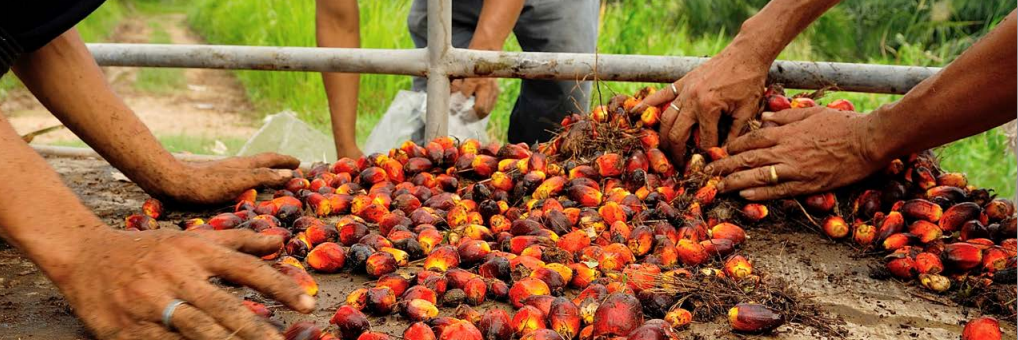While activists have achieved great successes recently in raising the profile of palm oil as a controversial commodity responsible for tremendous environmental destruction, the too-often overlooked reality is that the palm oil industry is also rife with serious labor and human rights abuses, including widespread forced and child labor as well as the unacceptable exploitation of millions of workers across Indonesia and Malaysia.
To address the urgent need for systemic change, Rainforest Action Network has spent the last two years working closely with an unprecedented coalition of Indonesian and Malaysian labor advocacy groups and international NGOs to develop a set of fair labor standards for palm oil production.
A result of these efforts is the publication of a guide, Free and Fair Labor in Palm Oil Production: Principles and Implementation Guidance, being released publicly for the first time now. It is the first statement of principles produced by a diverse civil society network that specifically focuses on labor conditions in the palm oil sector. This detailed set of standards will now be delivered as a set of recommendations to help guide companies, plantation certification bodies and government regulators towards eliminating systemic abuses currently common throughout the palm oil industry.
Throughout the long process of workshops and meetings that built consensus for these standards, participants shared heart-wrenching stories of severe health impacts from being forced to apply highly toxic chemical pesticides like paraquat, without proper protective equipment or training, especially among women. Workers spoke of widespread practices that include misleading and unethical labor recruitment, long grueling hours, unreasonable quotas, low wages, sub-standard housing conditions and a lack of access to basic necessities like clean drinking water, healthcare and education for children.
As more and more major players in the palm oil industry grapple with implementation of their recent No Exploitation, No Deforestation, No Peatlands commitments, it is crucial that labor voices are included as critical stakeholders in the process. Companies that produce, trade and source palm oil have a responsibility to do the work necessary to eliminate the pervasive labor abuses in their supply chains.
The principles and guidelines were based on the International Labor Organization’s core conventions and the UN Guiding Principles on Business and Human Rights. Among the recommendations:
-
Eliminate of all forms of forced or compulsory labor;
-
Abolish the worst forms of child labor;
-
Respect freedom of association and the right to collective bargaining;
-
Provide all workers adequate protective equipment free of cost;
-
Provide adequate housing, water, medical, educational and welfare amenities and protective equipment free of cost for all workers;
-
Ban toxic, bio-accumulative pesticides;
-
Commit to reasonable working hours and progress toward payment of a living wage;
-
Practice ethical recruitment with no fees for workers or seizure of identity documents;
-
Establish a legitimate, accessible, and transparent grievance mechanism, consistent with the UN Guiding Principles on Business and Human Rights; and
-
Commit to meaningful transparency and disclosure of all plantation processes.
The guide was developed by a forum of experts and key stakeholders hosted by Humanity United and comprised of representatives of unions, workers organizations, NGOs, investors and philanthropic organizations from the U.S, Europe, Malaysia, and Indonesia.
Partner organizations include: Federasi Serikat Perkerja Minamas, Finnwatch, Firestone Agricultural Workers Union of Liberia, Forest Peoples Programme, General Agriculture and Allied Workers Union of Liberia, Humanity United, HUTAN, Interfaith Center on Corporate Responsibility, International Labor Rights Forum, Land Empowerment Animals People, Link-AR Borneo, MONDIAAL-FNV, Malaysian Palm Oil NGO Coalition, OPPUK, Oxfam, Pesticide Action Network Asia and the Pacific, Rainforest Action Network, Sabah Environmental Protection Association, Sawit Watch, SERBUNDO, Serikat Buruh Medan Independen, Serikat Buruh Mandiri Indonesia, Tenaganita, Trade Union Care Center, Verité, and Walk Free, as well as advisory support from CERES.
Please stick with us as we will need your support as the real work begins of implementing these standards into business as usual for the global palm oil industry!
